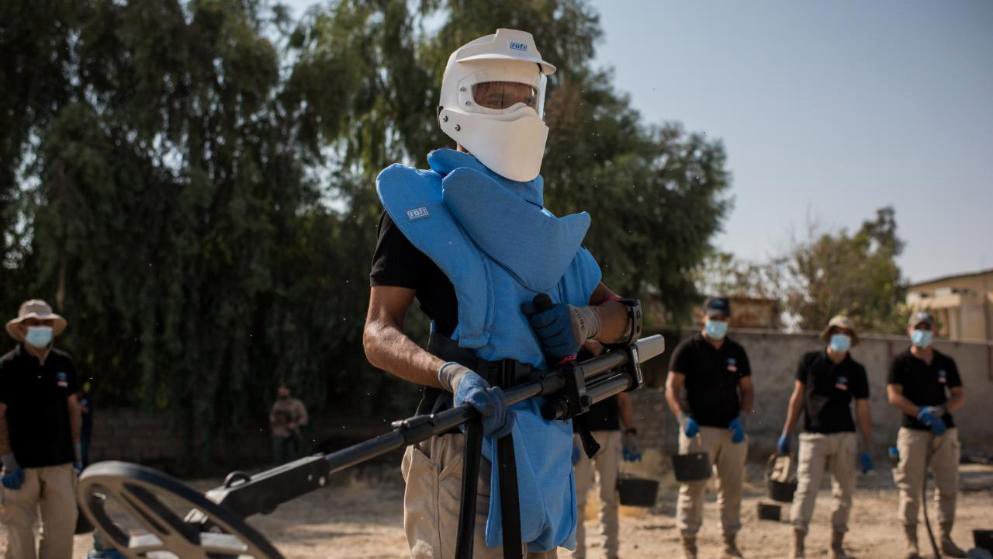UN marks Mine Awareness Day as threat from below continues in Iraq, Kurdistan

ERBIL (Kurdistan 24) – The United Nations mission in Iraq on Thursday marked International Mine Awareness Day, which aims to bring attention to the "continuing struggle to rid the world of landmines and explosive remnants of war and improvised explosive devices."
The international body's mine agency, the United Nations Mine Action Service (UNMAS), has coordinated much of the effort to remove explosives left behind by the Islamic State in many cities across Iraq, as well as those laid in previous conflicts.
"Last month was the 20-year anniversary of the 'entry into force' of the Anti-Personnel Mine Ban Treaty," read a statement released by the United Nations Assistance Mission for Iraq (UNAMI). "This is a remarkable achievement that deserves to be celebrated."
Iraq is among the 164 state parties to the 1999 document, also known as the Ottowa Treaty.
As the Islamic State was pushed from areas under their control across Iraq in recent years, retreating IS fighters routinely hid hundreds of mines and explosive traps under roads, in houses, buildings, farmland, yards, and even among children's toys. The presence of such hazards has substantially limited the return home of Iraqis displaced by the extremist group as well as humanitarian assistance in those areas.
Aside from explosives laid in the most recent conflict, mines that date back to the 1980s from the war between Iraq and Iran still pose a serious threat in multiple areas of Iraq and the Kurdistan Region. The previous Iraqi military planted thousands of mines on the border to hinder the advance of Iranian troops that still cause multiple deaths and disfigurements yearly.
After 1991, several local and international landmine-related organizations contributed to clearing the Iraq-Iran border from explosives, but large swaths of territory remain dangerous as they have not been de-mined yet.
Speaking of the aims of its continuing efforts to curtail new mine production, Thursday's UN statement read, "Every landmine not made, means potentially that one child’s life was not violently taken away or altered forever."
